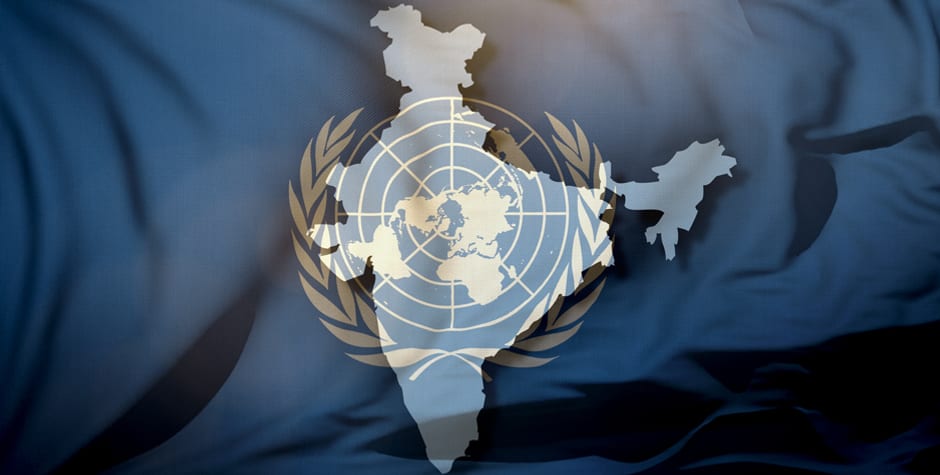Urging UN Special Rapporteur on Freedom of Religion and Belief To Take Action on Christian Persecution in India
Christians and other minorities continue to be persecuted in India, the world’s largest democracy. Through our affiliate, the European Centre for Law and Justice (ECLJ), we have just submitted a report to the United Nations’ Special Rapporteur on Freedom of Religion and Belief, Mr. Ahmed Shaheed, in response to his call for input on indigenous peoples and their right to freedom of religion.
Our report informs the U.N. Special Rapporteur that the majority of Christians, Dalits (formerly untouchables), and Adivasis (forest dwelling tribal people) in India share a common Dravidian origin and are indigenous to the land. When the Aryans came to the Indian subcontinent around 1400-1000 B.C., they divided the society into different castes. Brahmins (priests), Kshatriyas (warriors), and Vaishyas (farmers and merchants) were the three upper castes. Some local dark-skinned people were called Shudras (laborers) as the fourth caste. However, other locals were kept outside the caste system as untouchables (called Dalits today) and were forced to perform the most menial jobs.
The majority of Christians in the Indian subcontinent are converts from the lower caste Shudra and the untouchables. Christians and modern-day Christian converts from the Dalit and the Adivasi communities continue to face discrimination, persecution, and violence at the hands of the Hindu majority.
Our report explains:
Much of the modern-day persecution of these indigenous groups . . . occurs through the misuse of anti-conversion laws . . . . Christians . . . are a particular target of the fundamentalist Hindus because Christianity undermines India’s millennia-old caste system. Those belonging to the upper castes fear that becoming Christian will free lower castes from their social and political low status.
The report highlights:
A number of Indian states have enacted anti-conversion laws (ironically called Freedom of Religion Acts) to stop Hindus, Dalits, and Adivasis from converting to other religions. Hindu nationalists often use these laws to perpetrate violence against Christians, Dalits, and Adivasis, and severely hinder their freedom to practice their beliefs or convert to a religion of their choice.
These instances of persecution are not limited to restricting Christians from practicing their faith; they often include brutal violence. Our report recounted that there were at least 761 instances of violence against Christians in 2021. “In the first five months of 2022 alone, there were 207 reported instances of violence against Christians in several states in India.”
For instance, in March 2022, six masked men attacked a Christian pastor, slit his neck with a knife, and then shot him in front of his family for practicing his faith. He was on a list of 21 other pastors who were threatened to stop preaching Christianity.
In February 2022, a police officer burned down a church and threatened to kill church members if they did not stop their prayer and worship.
In January 2022, a mob of Hindu nationalists brutally assaulted a pastor and his wife for encouraging people from the Dalit community to join him in prayer.
In December 2021, three pastors were arrested for trying to convert members of the Adivasi community.
Also in December 2021, a Hindu mob attacked a Dalit Christian pastor and assaulted his family for converting their neighbors to Christianity.
In August 2021, a Hindu mob vandalized and demolished a church that belonged to the Adivasi community.
As we have highlighted in our several previous reports to the U.N., this submission also highlighted several other instances from a long list of incidents of persecution of Christians and converts from the Dalit and the Adivasi communities. “Even though caste-based discrimination is outlawed in India, it is very much prevalent. These outcaste communities, who were segregated and served the higher caste Hindus for millennia, continue to be violently persecuted today for either practicing or converting to a religion of their choice.”
We hope that our report will be helpful for the U.N. Special Rapporteur in highlighting the plight of Christians and other indigenous people in India.
